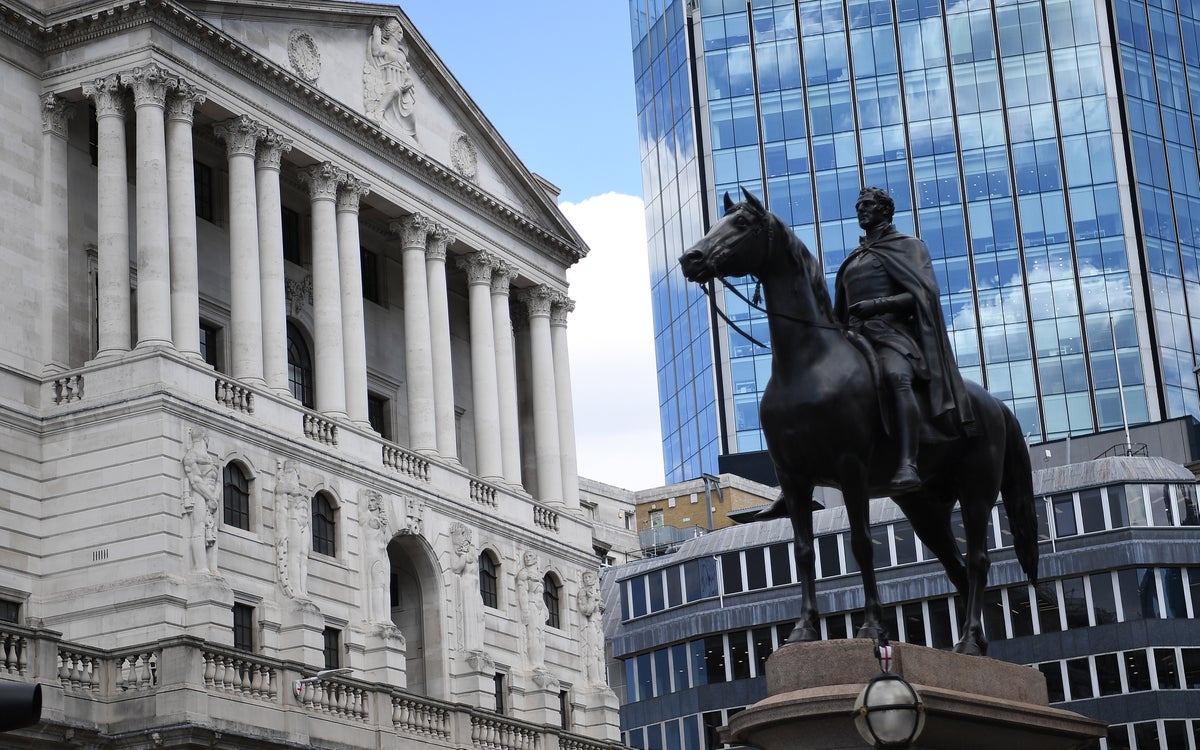
On 3 November, the Bank of England raised interest rates from 2.25 to 3 per cent - the biggest hike in the base rate since 1989.
It was the eighth consecutive time the UK’s central bank hiked rates it sought to tackle rising inflation, fuelled in part by Russia’s war in Ukraine.
At one point last year the rate was 0.1 per cent. Thursday’s 0.75 per cent rise will have a knock-on effect for savers and people who have mortgages on their homes.
And a leading trade union has warned that a hike in interest rates will plunge more workers into debt and financial hardship.
Here is a quick easy guide to how Thursday’s interest rate change will affect you:
What are interest rates?
An interest rate is a measure that tells you how high the cost of borrowing money is, or how high the rewards of saving are.
If you are borrowing money, typically from a bank, the interest rate on that money is the amount you will be charged for borrowing it.
It is a charge on top of the total amount of the loan and will be shown as a percentage of the overall.
Higher percentages mean paying more money to the lender for borrowing the money.
If you are saving money in a bank account, the interest rate on that money is the amount you will accrue on top of your savings. Banks will pay you a percentage of your total savings, typically at the end of the year.
How do interest rates affect inflation?
Low-interest rates are used to discourage people from piling up their money in savings. High-interest rates encourage saving because people get a better return for the money they are putting away.
This in turn has an effect on the price of goods.
When interest rates are low, people might spend more and this might cause retailers to put up the price of goods.
When interest rates are high, demand might fall as people put more money into their savings pots. This, in theory, should drive down the prices of goods and services.
However, rising prices are not a direct result of interest rate changes. Other things, including the supply of money and underlying costs, affect prices and cause inflation.
Interest rates can only help manage inflation.
How do interest rates affect mortgage rates?
Changes in the Bank of England’s base rate, which is the interest rate at which banks borrow from the Bank, have a knock-on effect on the interest rates that the high-street banks then set mortgage borrowers.
How does this affect me?
The changes in interest rates will affect anyone with savings and anyone who is borrowing money from the banks, for example in a mortgage.
It will also have a wider effect on the economy. By raising the base interest rate, the Bank of England is hoping to temper soaring inflation and help with the cost of living crisis.
Despite this, inflation is predicted to continue rising in the near future.
The Unite union has warned that a hike in interest rates will plunge more workers into debt and financial hardship.
A survey of 6,000 adults for the union found that just over half said they cannot or will have difficulty paying their household bills this year, while a almost a third said they have already gone into debt or increased the levels of their debt just to eat.
The poll also suggested that more than two-thirds of employees have already experienced a real-terms pay cut this year.
Unite general secretary Sharon Graham said: “Unite’s research shows that many workers face unsurmountable financial pressure. An interest rate hike will shackle those workers with more debt while corporate profiteering runs rampant.”







